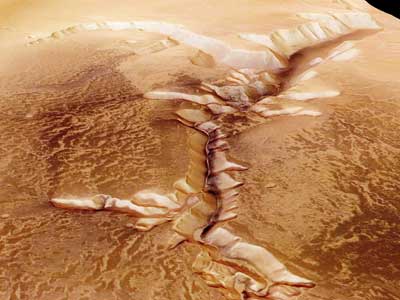A study recently published in the Geophysical Research Letters shares evidence that proposes that there is likely water flowing on Mars. If the evidence of the report is true, scientists believe that this discovery could lead to more information about the planet. Currently, researchers at the Georgia Institute of Technology are looking at different finger-like projections on the Martian terrain. These projections appear and then disappear in alternating seasons and the scientists believe this pattern as possible evidence of water on the planet.
“Water could explain these variations, “ said Lujendra Ojha to cnn.com. “Water in the seasonal flow would wash away small-sized grains — dust — and leave bigger grains. When water is not present, the bigger grains would remain, accounting for the changes in light absorption that researchers observed over time.”
In recent years, scientists across the country have conducted studies to look further into the possibility of water on Mars. Three years ago, Lujendra Ojha and his team provided evidence of seawater on Mars. Ojha started his study of Mars as an undergraduate student at the University of Arizona., Tucson. While there, he discovered irregular features in a Martian crater that he was studying at the time. According to cnn.com, after their research, the team made the conclusion that briny water was the source. Since that study at the University of Arizona, Tucson, Ojha enrolled in the Georgia Institute of Technology and jump started the research project that concluded the recent findings.
“There is always speculation that there is water on Mars, but this time really seems promising,” said senior Emily Kramer. “I think that if they do find water on Mars there is a possibility for a lot of change and advancement in the science and possibly technology fields.”
Because of the mineral content expected to be in the water on the surface, Ojha believes that this evidence would explain the variations in the appearance of the terrain and would then suggest that the water is on Mars. Although researchers do believe that the briny water is on Mars, they do not yet know if it will be useful to humans.








